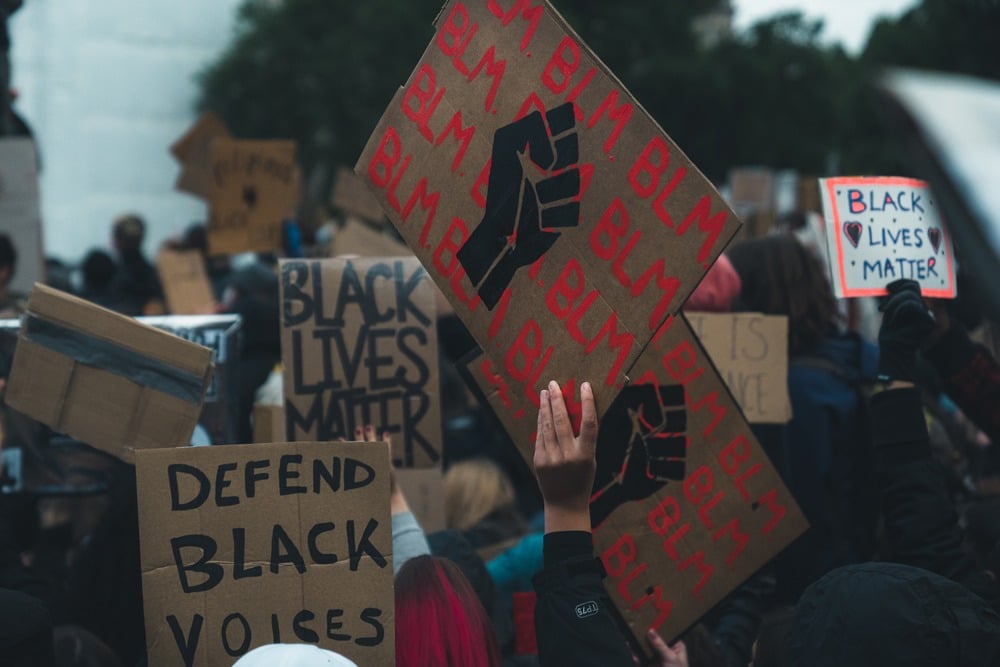
Black people and people of color have experienced significantly higher rates of COVID-19 infection and death compared with their white counterparts. It is no coincidence that they have suffered disproportionately worse outcomes in the COVID-19 pandemic, as these disparities reflect a history of systemic racism in the United States.
At the recent Aspen Institute panel, “American Racism Through the Lens of COVID-19,“ journalist Maria Hinojosa moderated a conversation with physicians Dr. Thomas Fisher and Dr. Reagan McDonald-Mosley about the ways that racism has both predated and fueled the ongoing public health crisis, with several recurring themes:
Disparities Are Nothing New
The stark contrasts in outcomes between Black people and people of color and white people throughout the COVID-19 pandemic follow a pattern of inequity and injustice.
“We knew from the very beginning of this outbreak in our nation that people of color would be disproportionately impacted because the reality [is] that racism is inherently built into all of our institutions“ spanning the social determinants of health, said Dr. McDonald-Mosley, chief medical officer for Planned Parenthood of Maryland and co-director of Dr. Shalon‘s Maternal Action Project.
Dr. Fisher, an emergency medicine physician at the University of Chicago, also was not surprised by the inequities facing Black Americans especially during the COVID-19 pandemic. “When you have a society where the worst possible health outcomes settle within the same racial caste over and over again, you have to expect that the coronavirus would be no different,“ he said. He explained that despite greater recognition of social determinants influencing health, including with COVID-19, the burden still lies with Black individuals to achieve good health without consideration of barriers they may face.
“We tend to hold blameless the systems that we‘ve all constructed and instead, apply all of the responsibility to an individual to eat right, to follow the right precautions, to use condoms, to not smoke, and we ignore the fact that the system creates situations where in order to do the right thing for some people, they have to go against the system at all times.“
Racism, Not Race, Is the Problem
Racism has shown to have serious physical and psychological effects on the people who are impacted by it. Dr. McDonald-Mosley explained the concept of allostatic load, which is commonly described as the wear and tear a body experiences from chronic stress. While “it is not healthy or normal to have an elevated cortisol level at all time chronically,“ she said, “that is the experience of Black and brown people walking through our world.“
However, it is critical to distinguish between racism and race when analyzing health disparities, because race in and of itself does not make people sick. “It has been ingrained in us and in our training that race is biological and guess what? That is completely wrong,“ she said. “So race is real, but it is not biological, it is not genetic. There is as much genetic diversity between races as there are within races.“
This misconception persists, with a recent article in a prominent medical journal even suggesting biological differences in Black patients with COVID-19, Dr. McDonald-Mosley noted. This fallacy is dangerous because “it allows us to blame Black people for this increased risk of dying because of COVID. And the article doesn‘t say so much, but it says maybe there‘s something about the biology of Black people that caused this.“
Dr. Fisher pointed to the interest in vitamin D as a protective factor against COVID-19 infection for Black and brown people — who naturally produce less vitamin D than white people — as an example of failing to look beyond surface-level fixes.
“There‘s so much energy and effort in the healthcare system to look under the skin, into a cell, into a molecule to find the answer when the answers are obvious and around us in society. And that is a much more challenging problem to solve,“ Dr. Fisher said. “And so we look away. Also, because we as doctors and as individuals are implicated in the construction of our society, whereas we‘re not implicated in what‘s in that cell or what‘s in that molecule.“
Systemic Change Is the Way Forward
Racial injustices, whether related to COVID-19 or violence perpetrated against Black people and people of color, must be confronted. But this will require systemic change beyond one-off, small-scale interventions for issues such as implicit bias in medicine.
“I am skeptical of educational interventions to unravel systemic issues, whether the education is on the individual, the leadership structure, or anywhere in between,“ Dr. Fisher said. “It puts the onus again on an individual to work against the system rather than reshaping the system in order to create one that‘s more equitable and safe.“
Dr. Fisher posed a question to the audience urging deeper reflection of the challenges at hand: “What are the fundamental changes we have to create within our organization so that people like physicians who want to do the right thing for the right people do not have to actually go against systems of care, but are following systems of care that create just outcomes?“
With healthcare providers on the frontlines seeing inequities play out in their field, this could be a moment for addressing racism head-on and effecting meaningful change, Dr. McDonald-Mosley said.
“I think this is going to force us to really face this and change our systems in a very different way than the…subtle outcomes that were happening that we really had to look for before,“ she said. “But now it‘s overt and obvious and right in front of us.“
For More Information
Following their presentation, Dr. Fisher and Dr. McDonald-Mosley provided the following resources for people to learn more about the issues they discussed.
Race and Race as a Social Construct
- American Anthropological Association, RACE: Are We So Different?
- National Geographic, There‘s No Scientific Basis for Race—It‘s a Made-Up Label
- PBS, RACE-The Power of Illusion; specifically What is Race? and Interview with Alan Goodman
Systemic Racism
- Race Forward, What is Systemic Racism?
- Time, The Many Ways Institutional Racism Kills Black People
Differences in COVID-19 Testing and Care
- NPR, In Large Texas Cities, Access To Coronavirus Testing May Depend On Where You Live
- Kaiser Health News, Long-Standing Racial And Income Disparities Seen Creeping Into COVID-19 Care
- Data for Black Lives, COVID-19 Movement Pulse Check April 2020
- Bilal, Barber & Diez-Roux‘s pre-print study Spatial Inequities in COVID-19 Outcomes in 3 US Cities




